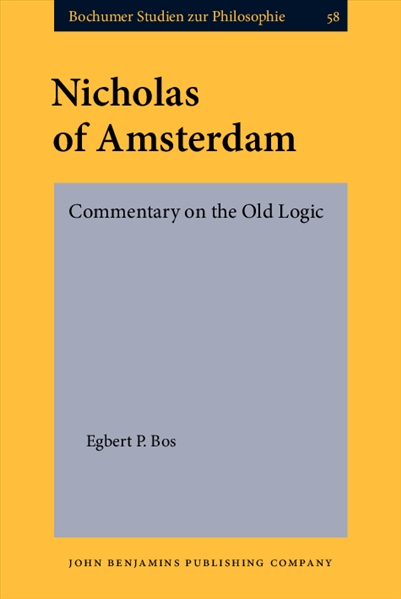
Master Nicholas of Amsterdam was a prominent master of arts in Germany during the first half of the fifteenth century. He composed various commentaries on Aristotle's works. One of these commentaries is on the ...
Master Nicholas of Amsterdam was a prominent master of arts in Germany during the first half of the fifteenth century. He composed various commentaries on Aristotle's works. One of these commentaries is on the logica vetus, the old logic, viz. on Porphyry's Isagoge and on Aristotle's Categories and On Interpretation. This commentary is edited and introduced here.
Nicholas is a 'modernus' - as opposed to the 'Antiqui', who were realists - which means that he is a conceptualist belonging to the university tradition that accepted John Buridan (ca. 1300-1360 or 1361) and Marsilius of Inghen (ca. 1340-1396) as its masters. In medieval philosophy, a parallel between thinking and reality is generally upheld. Nicholas makes a sharp distinction between the two; this may be interpreted as a step towards a separation between the two realms, as is common in philosophy in later centuries.
Other characteristics of Nicholas are that he defends the position that science has its place in a proposition, and does not simply follow reality. Furthermore, he emphasizes the part played by individual things.
Fifteenth-century philosophy has hardly been studied, mainly because that century is considered unoriginal. Nicholas may deserve the historian's interest in order to evaluate in what way medieval philosophy prepared the way for modern philosophy.
Interrogative Strategies An Areal Typology of the Languages of China
Read Full Description >>
|
ISBN: 9789027214683 |
£101.00 |
